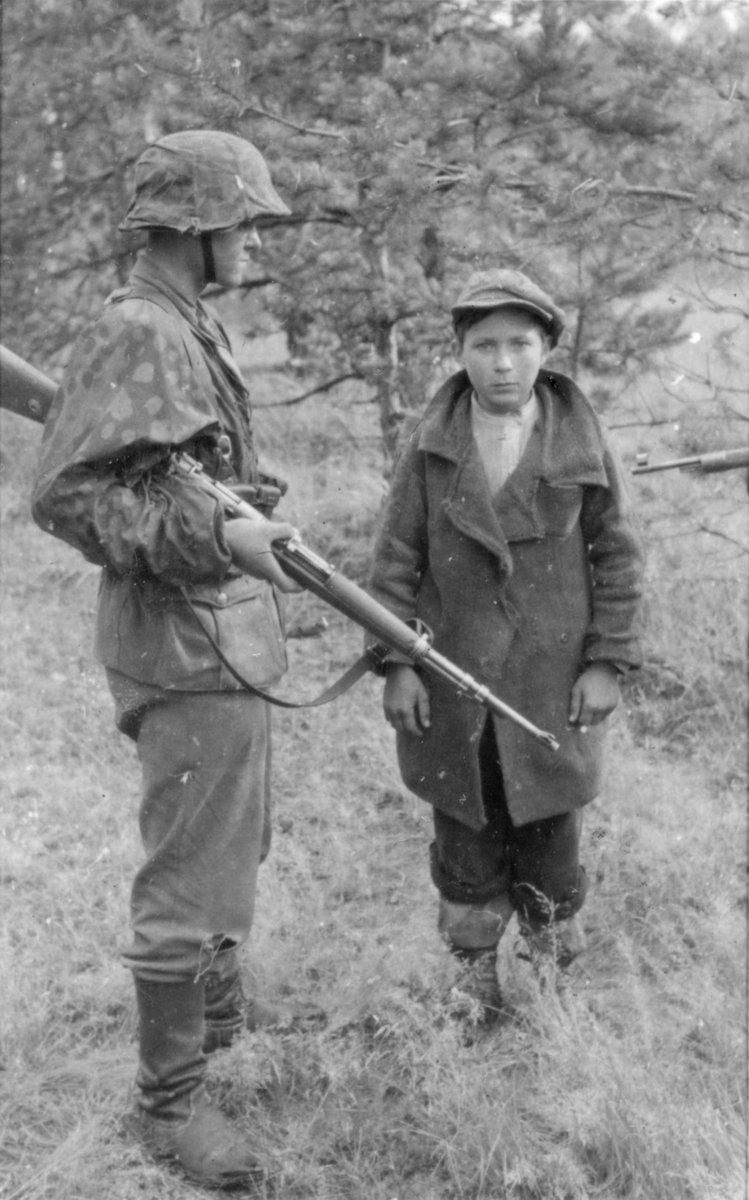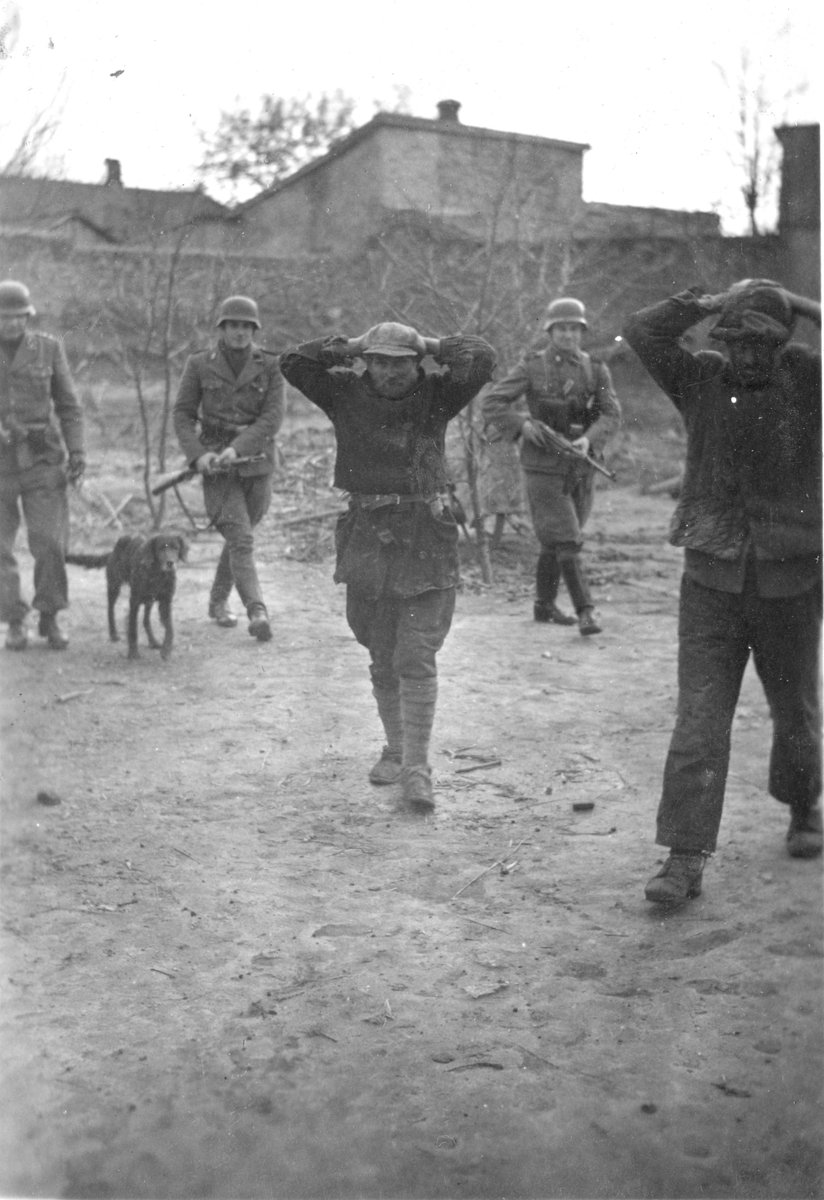#Ukraine - the Lions of the Ukraine - #RealKrieg
Volodymyr Zelenskyy - leading and fighting for the Ukrainian people.
Image see.news
Volodymyr Zelenskyy - leading and fighting for the Ukrainian people.
Image see.news

History - Sidor Kovpak - a Lion of the Ukraine
One of the greatest partisan and resistance leaders in guerrilla warfare history
Image: tracesofwar.com
One of the greatest partisan and resistance leaders in guerrilla warfare history
Image: tracesofwar.com

Kovpak: was born in Kharkiv (1887) in Imperial Russia. He served with the Russian Army in the Great War and took part in the Brusilov/Kerensky offensives. He was awarded military decorations for bravery. He turned against the regime in 1917 and joined the Bolsheviks.
During the inter-war years he was involved in local government politics in Putyvl in north-east Ukraine. He was 54 years old when the German Army invaded Russia in 1941.
Accounts vary how he joined-up and served as a partisan leader. By 1942, he was already recognised as a master of guerrilla warfare tactics. IMO he learned his basic methods during the revolution, in the civil war and after.
Image: @UkNatArchives //PWB
Image: @UkNatArchives //PWB

Partisan movements of East Europe were not the same. Some formed intelligence cells (Bialystok), others committed assassination (Poland) or served inside Nazi occupation - sabotaging from within. In Belarus and Ukraine, the main strategy was ‘war of the rails’.
Image: Purnell
Image: Purnell

Kovpak was a raider, driving a large military force deep into the German rear-area. The aim being to strike at strategic points to break German concentration and disrupt supply movements. There were several raiders - the Gershin Regiment.
Image: wows.org
Image: wows.org

In March 1942 Kovpak set out on a raid from Bryansk he camped in the Smolensk area. In early 1943 they set out to Rovno, Dubno, and on to the Galician region. This area was familiar to Kovpak and his band went largely unnoticed.
My skizzie shows the areas covered.
My skizzie shows the areas covered.

Kodak’s memoirs and German records do not tally in regards to forces deployed. Contrary to myths, most Soviet Partisans fought as Red Army soldiers in full uniforms. The Germans refused to recognise them because the fought 30 kilometres beyond the front.
Images: Kovpak



Images: Kovpak




The Kovpak band had 4 rifle battalions, a scout company, an engineer detachment, an A/T battery, a cavalry group, and supply, medical, propaganda and train units. Reports claim between 3-4,500 men, women and some specialists.
Kovpak began to attack axis forces & triggered security assets under SS-Gruppenführer Friedrich-Wilhelm Krüger controlling the area of occupied Poland. Krüger was highly skilled at mass murder of Jews but less capable at fighting committed insurgents.
Image: Bossanoven
Image: Bossanoven

The Luftwaffe general was Walter Sommé. He was CO of Luftgau VII. The overall commander of Bandenbekämpfung operations, since August 1942, was Erich von dem Bach-Zelewski in Lyck in North-East Poland.
Images: Gareth Collins // Bundesarchiv Bild 183-S73507

Images: Gareth Collins // Bundesarchiv Bild 183-S73507


Kovpak confronted axis forces and collaborators: Germans, Russians, Italians, Ukrainians, Poles and Hungarians. The Germany assigned reserve regiments, SS-Police assigned police regiments and a number of other units. The Luftwaffe assigned air and ground units under training.
The Luftwaffe assigned 5 Hs 129 and ME110 twin engine aircraft from training units based in Poland. The crews and ground troops were issued 1:100,000 scale maps to navigate the area.
Images: PD // @BundesarchivD

Images: PD // @BundesarchivD


The Germans issued the codename Operation Wehrwolf and engagements were recorded from 7 July 1943. Fighting began in the forest of Tarnopil in Western Ukraine today. Kovpak fled toward the Carpathians, after shaking off the Germans.
Kovpak broke cover in the Rosilna area on 18 July and attacked elements of the 4th SS Police Regiment in the town. A company was trashed at midnight as Kovpak used hit and run tactics - with complete surprise.
Image: Novosti Press Agency
Image: Novosti Press Agency

On 24 July the fighting turned into a frenzy as the SS-Police forced 1,500 replacements into the fight. The 13th/26th SS Police Regiments and flak from Himmler’s flak battalion were also deployed. Then Kovpak slipped away - completely disappeared.
Image: Purnell
Image: Purnell

On 11 August 1943 Bach-Zelewski sent a scathing attack on Krüger for gross incompetence - Kovpak had escaped. The Germans later estimated 642 partisans killed and 100 captured. The Germans claimed 141 dead and 129 wounded. The captured partisans were killed.
Image: @Leibniz_IfZ
Image: @Leibniz_IfZ

After the war Bach-Zelewski claimed:
‘ … there wasn’t a Kovpak man who went into captivity. They were the most fanatical and courageous partisans that I have ever seen. They were strictly disciplined …
‘ … there wasn’t a Kovpak man who went into captivity. They were the most fanatical and courageous partisans that I have ever seen. They were strictly disciplined …
Kovpak returned to Red Army lines and in 1944 set out raiding again. By that stage his name spread fear though Germans minds and every partisan action was countered by a heavy response assuming it was Kovpak.
In July 1944 a massive operation was conducted in Polish forests. Years later, former Germans soldiers claimed they were fighting to Kovpak from trying to relieve the Warsaw Uprising. Such was Kovpak’s lasting reputation.
After the war, Kopak continued in politics until his death in 1967. In his lifetime he was honoured as a Hero of the Soviet Union. After his death his life was memorialised in film
Images: PD, tracesofwar.nl peoples.ru



Images: PD, tracesofwar.nl peoples.ru




For the Ukrainian people in their heroic fight against tyranny.
@ZelenskyyUa #Ukraine #UkraineUnderAttaсk #UkraineKrieg #Kyiv
@ZelenskyyUa #Ukraine #UkraineUnderAttaсk #UkraineKrieg #Kyiv
• • •
Missing some Tweet in this thread? You can try to
force a refresh

























